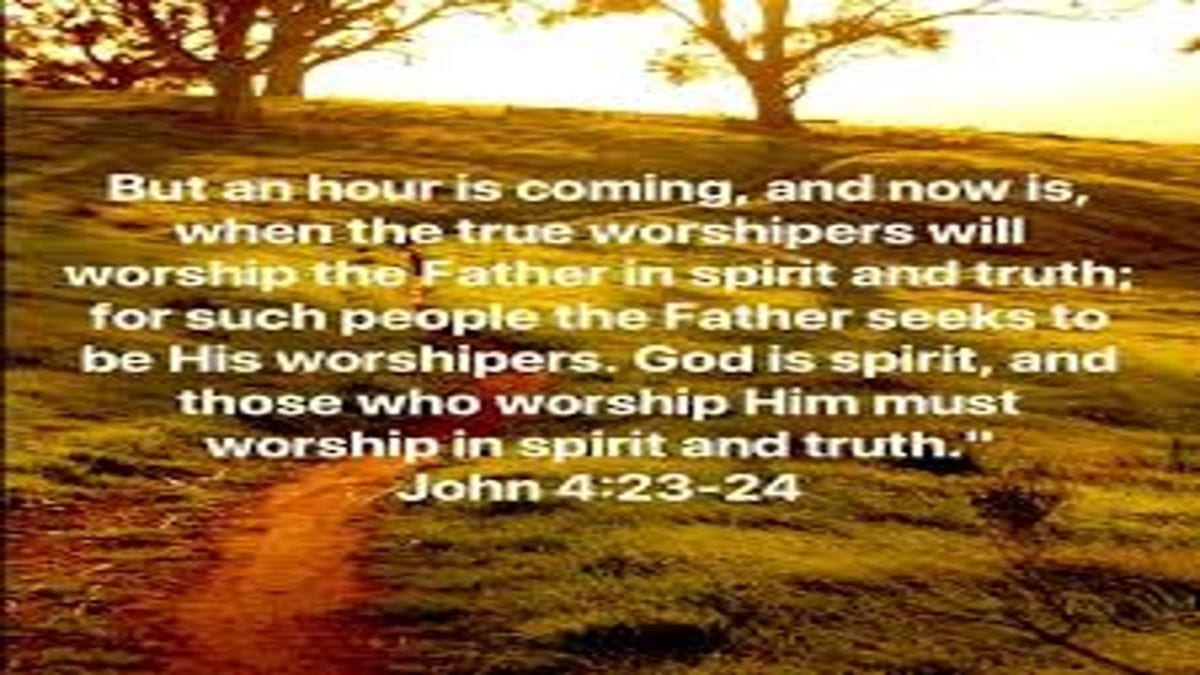Romans 10:5-13 How Faith Speaks

The paragraph to which our study of Romans has now brought us (Rom. 10:5-13), is part of a longer section beginning with Romans 9:30 and running to the end of Romans 10, a section in which Paul is explaining that the unbelief of his countrymen is not God’s fault but theirs, since the gospel had been communicated to them. The paragraph develops that analysis by contrasting what Paul calls “a righteousness that is by law”with“righteousness that is by faith.” But the verses we are studying (vv. 5-9) do more than this. They also describe three kinds of religion, pointing us away from the two wrong kinds of religion to the true religion that confesses Jesus Christ as Lord. These three religions are: (1) the religion of works, (2) the religion of signs, and (3) the religion of faith. Paul develops them by telling us: (1) how legalism speaks, (2) how faith does not speak, and (3) how faith does speak.
The first religion is the religion of works. In religion we are talking about more than mere morality. We are talking about how a person can become right with God. If we approach the text at that level, allowing the word “live” to speak not merely of a happy life here but of eternal life, then we need to acknowledge that no one is able to keep the law of God well enough to reap this great benefit. It is true that anyone who is able to keep the law perfectly will be rewarded by God with eternal life. But nobody does keep the law perfectly. Therefore, salvation is beyond the grasp of those who are merely law-keepers. Right standing before God must be sought in a different way entirely, and that is by faith in Jesus Christ as the Savior.
Paul would add that the way of works and the way of faith cannot be mixed, which in my judgment is how he uses the text from Leviticus 18:5 here. The way of works is the way of law, he says. If you think you are going to be saved by law, it is by keeping the law that you try to be saved. But you cannot make up your deficiencies by adding faith to it, just as it is also impossible to begin by faith and then add law. No one can be saved by a religion of works, however he or she tries. Many are trying. Most of the world’s religions are works religions. But the Bible says that if you would be saved, you must give up any thought of contributing to your salvation by what you do and instead trust Jesus Christ and His work completely.
The second religion Paul writes about in these verses is the religion of signs and wonders, which he introduces as a way the religion of faith does not speak (vv. 6-7). These verses introduce a second reference to the Old Testament (Deut. 30:12-14), but they are not an exact quotation. In this case, because he is handling the words loosely, Paul writes instead, “The righteousness that is by faith says…” Then Paul throws in an additional twist, explaining Moses’ reference to ascending into heaven by adding “that is, to bring Christ down” and his reference to going beyond the sea (or descending into the abyss) by adding “that is, to bring Christ up from the dead.”
What do those strange explanations mean? (1) Israel did not need an additional Word from God. This is the literal meaning of the words in Deuteronomy, and although Paul adds specifically Christian interpretations to them, this meaning alone is true both of Israel and for the Christian community. (2) Israel did not need to do something in order to bring the Messiah to them. This is the unique sense of what Moses said to the people. For we notice that he did not speak merely of waiting for a new word from heaven or beyond the sea but rather of “ascending” into heaven or “crossing” the sea to get it. The Jews wanted to do something to earn their salvation. Yet even before the Messiah came they were not expected to do anything, only believe God’s Word and look forward to Him in faith, as Abraham, David, and other Old Testament believers had done. Now it is even more apparent that this is the case. All that is needed is to believe on the Lord Jesus Christ and the gospel. (3) Neither Israel nor Christians today are to look for miracles. If someone could produce Christ or His power on demand, bringing Him down from above or up from below, that person would be a miracle worker. We are not to seek miracles as part of the gospel presentation. For a religion of signs and wonders is as false a gospel as the religion of works. Both are attempts to do something that God has declared outside true Christian proclamation, and signs, as well as works, detract fatally from the message of Christ’s atonement.
This brings us to the third of these religious systems, the one Paul has been urging all along. We have seen how faith does not speak. It does not call for signs. How then, does faith speak? Paul gives the confession of true faith in verses 8 and 9. It’s important here to see the essence of this third, true religion. First, it is a religion based on Jesus and His work alone. For the message that is near us, in our mouths and hearts, is Jesus, and the confession of faith through which we are saved is that “Jesus is Lord” and that God raised Him from the dead. Christianity is Jesus Christ. So anything that detracts from Him or His work is a false religion.
Second, faith is essential. We are not saved by works or miracles, but this does not mean that salvation is somehow extraneous to us in the sense that it happens mechanically. On the contrary, it is as intimate and life-transforming as anything could possibly be. It finds us as dead men and women, under the curse of God, and it changes us into spiritually regenerated people who now live under God’s protecting love and blessing. How does that happen? It happens through faith, which is what Paul has been saying all along.
Notice what happens to the language of the message in verse 9. In verse 5 Paul has been quoting Moses. He tells us what Moses said. Verses 6 through 8 have been quoting “the righteousness that is by faith.” They tell us how faith speaks. But what happens in verse 9? For the first time in many verses, the language shifts from the third person to the second person, emphasizing the word you. “That if you confess with your mouth, ‘Jesus is Lord,’ and believe in your heart that God raised Him from the dead, you will be saved.”
It is the clearest means Paul could possibly have chosen to use in the context of explaining the nature of true religion and the essence of the true gospel: “You must believe it.” It is not of works, and it is not in response of miracles. But it is of faith! Therefore, it is only those who believe on the Son of God who are saved. Have you believed on Christ and confessed Him before other people, as He commands you to do? Have you called on His name?
Remember, works will not save you. You cannot keep the law even if you want to, and deep in your heart you don’t even want to keep it. And God is not going to give you miracles to stimulate your religious appetite. Christ has already descended from heaven. He has already told us who God is and what He requires of us. Jesus has given His life for His people. He has already been raised from the dead. Therefore, the gospel is not far off. It is right here. It is in our mouths and in our hearts. All that remains is for you to embrace it personally and so pass from a false religion to the true one and thus from death to life.
Romans 10:5-13 Reflection Questions:
Read Deuteronomy 30:11-14, which Paul mentions in Romans 10:6-8. Deuteronomy 28-30 come near the end of Moses’ long charge to the Israelites before they enter the Promised Land. There Moses tells Israel what is going to happen to them in the days to come. If Israel keeps God’s commandments, God promises blessings; if they don’t, he warns of curses to come. What’s more, Moses solemnly predicts that Israel will disobey and will be driven out of the Promised Land, sent off into exile. But then Deuteronomy 30 has a fresh word, a further promise to which God commits Himself. He promises to transform their hearts, so that they can at last keep His law the way He always intended.
In Romans 10:5-13 how is Paul suggesting that what Moses said about Israel’s disobedience and exile, as well as the promise of a new word, have been fulfilled in Jesus?
In Paul’s world, “Lord” was a title for Caesar. Saying Jesus was “Lord” meant, ultimately, that Caesar was not. Today, when we say Jesus is Lord, who or what are we saying is not Lord?



